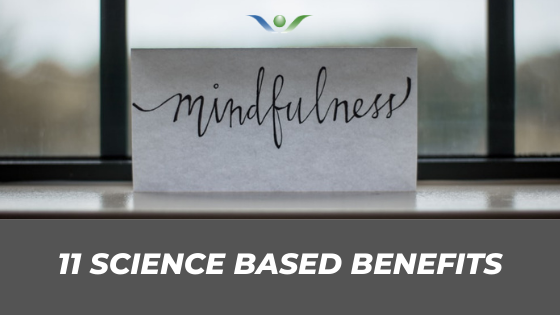1. REDUCES STRESS
- Many styles of meditation can help reduce stress. Meditation can also reduce symptoms in people with stress-triggered medical conditions.
- In an eight-week study, a meditation style called “mindfulness meditation” reduced the inflammation response caused by stress. (1) Another study in nearly 1,300 adults demonstrated that meditation may decrease stress. Notably, this effect was strongest in individuals with the highest levels of stress. (2)
2. CONTROLS ANXIETY
- Habitual meditation helps reduce anxiety and anxiety-related mental health issues like social anxiety, phobias and obsessive-compulsive behaviors.
- An eight-week study of mindfulness meditation helped participants reduce their anxiety. It also reduced symptoms of anxiety disorders, such as phobias, social anxiety, paranoid thoughts, obsessive-compulsive behaviors and panic attacks. (3) Another study followed up with 18 volunteers three years after they had completed an eight-week meditation program. Most volunteers had continued practicing regular meditation and maintained lower anxiety levels over the long term. (4)
3. PROMOTES EMOTIONAL HEALTH
- Some forms of meditation can improve depression and create a more positive outlook on life. Research shows that maintaining an ongoing habit of meditation may help you maintain these benefits long term.
- Two studies of mindfulness meditation found decreased depression in over 4,600 adults. (5) (6) One study followed 18 volunteers as they practiced meditation over three years. The study found that participants experienced long-term decreases in depression. (7)
4. ENHANCES SELF-AWARENESS
- Self-inquiry and related styles of meditation can help you “know yourself.” This can be a starting point for making other positive changes.
- In a study, 40 senior men and women who took a mindfulness meditation program experienced reduced feelings of loneliness, compared to a control group that had been placed on a wait list for the program. (8)
5. LENGTHENS ATTENTION SPAN
- Several types of meditation may build your ability to redirect and maintain attention. As little as four days of meditation may have an effect.
- One review concluded that meditation may even reverse patterns in the brain that contribute to mind-wandering, worrying and poor attention. (9) Even meditating for a short period may benefit you. One study found that four days of practicing meditation may be enough to increase attention span. (10)
6. MAY REDUCE AGE-RELATED MEMORY LOSS
- The improved focus you can gain through regular meditation may increase memory and mental clarity. These benefits can help fight age-related memory loss and dementia.
- A review of 12 studies found that multiple meditation styles increased attention, memory and mental quickness in older volunteers. (11)
7. CAN GENERATE KINDNESS
- Metta, or loving-kindness meditation, is a practice of developing positive feelings, first toward yourself and then toward others. Metta increases positivity, empathy and compassionate behavior toward others.
- Twenty-two studies of this form of meditation have demonstrated its ability to increase peoples’ compassion toward themselves and others. (12)
8. MAY HELP FIGHT ADDICTIONS
- Meditation develops mental discipline and willpower and can help you avoid triggers for unwanted impulses. This can help you recover from addiction, lose weight and redirect other unwanted habits.
- Research has shown that meditation may help people learn to redirect their attention, increase their willpower, control their emotions and impulses, and increase their understanding of the causes behind their addictive behaviors. (13)
9. IMPROVES SLEEP
- A variety of meditation techniques can help you relax and control the “runaway” thoughts that can interfere with sleep. This can shorten the time it takes to fall asleep and increase sleep quality.
- Participants who meditated fell asleep sooner and stayed asleep longer, compared to those who didn’t meditate. (14)
10. HELPS CONTROL PAIN
- Meditation can diminish the perception of pain in the brain. This may help treat chronic pain when used as a supplement to medical care or physical therapy.
- A large study looked at the effects of habitual meditation in 3,500 participants. It found that meditation was associated with decreased complaints of chronic or intermittent pain. (15)
11. CAN DECREASE BLOOD PRESSURE
- Blood pressure decreases not only during meditation, but also over time in individuals who meditate regularly. This can reduce strain on the heart and arteries, helping prevent heart disease.
- A study of 996 volunteers found that when they meditated by concentrating on a “silent mantra” — a repeated, non-vocalized word — reduced blood pressure by about five points, on average. (16)
LETS CONNECT
Here at Voice of Hope we provide online and in person therapy counselling and our mission is to provide a professional & honest approach to your mental health
If you are wanting to take the next steps, we’d love to help you.
We offer a free 20 minute virtual consult
The purpose of this call will be for you to briefly share what you are hoping to get out of counselling. The therapist will also explain their approach and answer any questions you may have. You can book on the link below


